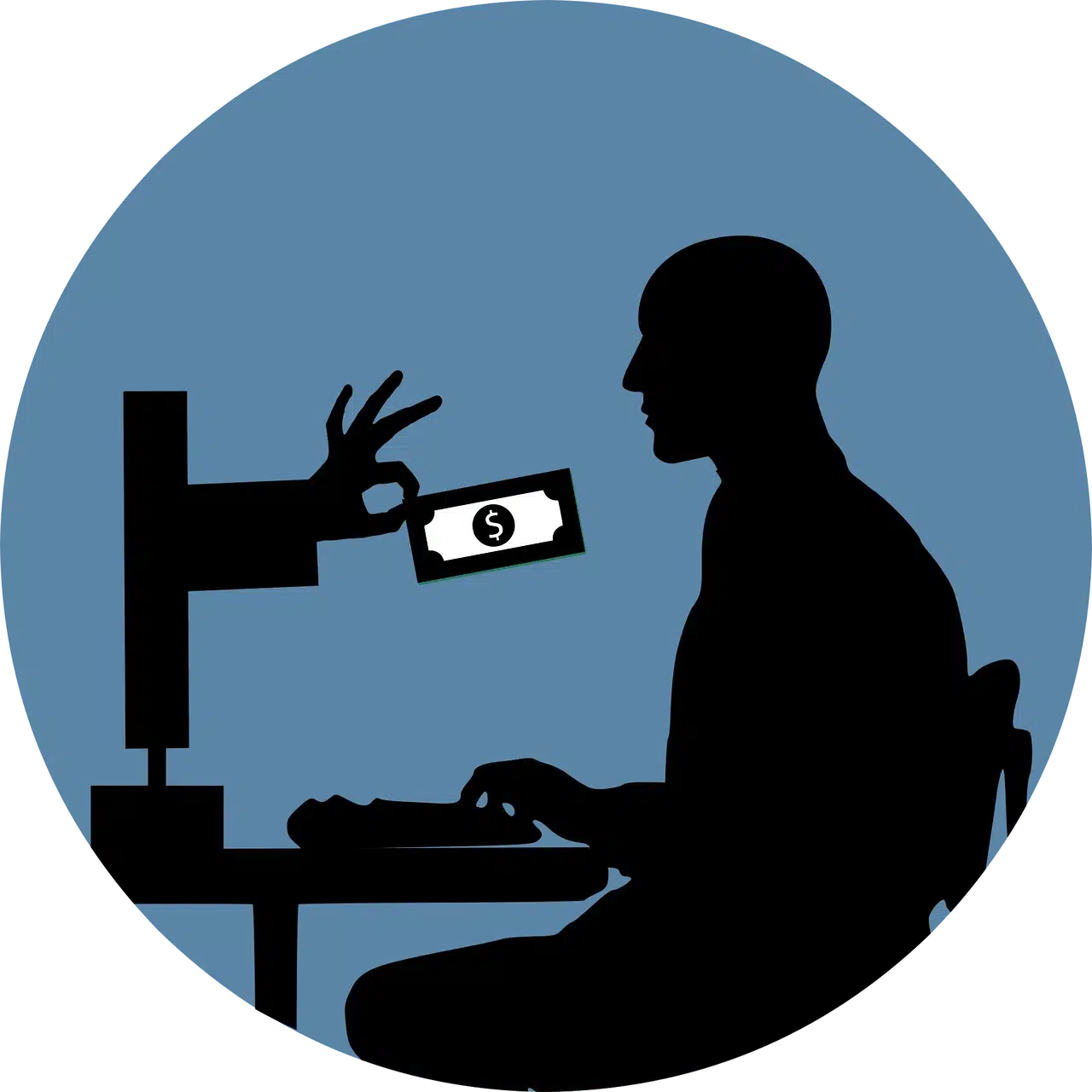How To Get a Loan with Bad Credit: Expert Guide

Managing finances with bad credit can be challenging, as many lenders view low credit scores unfavorably, making it difficult to secure loans. However, there are still options available to access the funds you need, even with a less-than-ideal credit profile. This article explores effective strategies for borrowing money with bad credit, including personal loans and alternative lending options, along with practical tips for improving your financial situation.
Key Takeaways
- Lenders generally consider low credit scores as bad credit, which can limit borrowing options.
- Personal loans for individuals with bad credit often come with high interest rates.
- Borrowers with bad credit may encounter restrictions on loan amounts.
- Credit unions can be a viable alternative, offering more favorable interest rates compared to traditional lenders.
- Prequalifying for a loan provides insight into your eligibility without impacting your credit score.
- Keeping your debt-to-income ratio manageable improves your likelihood of loan approval.
Understanding Bad Credit and Its Impact
Dealing with bad credit can be challenging, as it impacts access to loans and credit opportunities. Lenders tend to be more cautious, often offering less favorable terms.
Understanding the implications of bad credit not only helps you manage its effects but also directs you on how to borrow money despite these challenges. With the right strategies, you can work towards improving your financial standing and finding suitable borrowing options.
What is Considered Bad Credit?
Credit scores help lenders see how risky you are as a borrower. A bad credit score is a FICO score below 580. This can make it hard to get loans.
- Higher interest rates, averaging around 36% for loans.
- Origination fees, which may reach 5% of the loan amount.
- Limited lender options, as some lenders only cater to those with better scores.
Consequences of a Low Credit Score
A low credit score can lead to more than just loan troubles. It can mean higher costs and even being denied credit. Here’s how it compares:
| Criteria | Good Credit Loans | Bad Credit Loans |
| Origination Fee | 1% | 5% |
| Interest Rate | 10% | 29% |
| Typical APR | Up to 12% | Over 30% |
Improving your credit score is crucial. Paying bills on time and reducing credit card balances can help. Knowing the effects of bad credit helps you make better financial choices.
Steps for Borrowing Money with Bad Credit
Start by checking your financial health before you borrow money. Look at your income, debts, and how much you can pay back. Knowing your finances well is key. Then, find lenders that help people with bad credit.
Assess Your Financial Situation
First, evaluate your financial health. List your income, expenses, and debts. This helps you know how much you can pay back. Understanding your finances makes talking to lenders easier.
Research Your Options for Getting a Loan
After reviewing your finances, explore loan options tailored for individuals with bad credit. Many lenders offer programs with varying loan amounts, APRs, and repayment terms, ranging from short to long periods. Some lenders provide quick funding without checking credit scores, making it essential to understand these specifics.
Comparing rates and terms across lenders will help you select the best option for your financial situation. Careful evaluation ensures you make informed borrowing decisions and avoid unnecessary costs.
How to Borrow Money with Bad Credit
Getting funds with bad credit can feel challenging, but there are several options available. Personal loans for bad credit, peer-to-peer lending platforms, and community banks are viable alternatives. Exploring these sources can help you secure the money you need, even with a low credit score.
Personal Loans for Bad Credit
Personal loans for bad credit are available, but they often come with higher interest rates, typically around 36% APR. In emergencies, some loans may carry even steeper rates. These loans are usually structured with repayment terms ranging from 12 to 84 months. It’s important to plan your repayment carefully to avoid further financial strain.
Peer-to-Peer Lending Platforms
Peer-to-peer lending connects you directly with investors. This option can offer flexible loan terms and lower interest rates. It’s a good choice for those with poor credit, as investors look at more than just your credit score.
Credit Unions and Community Banks
Credit unions and community banks are great for loans with bad credit. They often have better terms than big banks. Their focus on the community means they might be more willing to work with you.
| Loan Type | Typical APR Range | Repayment Period | Pros | Cons |
| Personal Loans | 36% – 160% | 12 – 84 months | Fixed repayment schedule | Higher rates for bad credit |
| Peer-to-Peer Lending | Varies | Varies | Flexible terms | Investors may require strict criteria |
| Community Banks | Lower than payday loans | Varies | Community support | May require membership |
Read More: Good Reasons to Borrow Money
Checking Your Credit Score and Reports
Understanding your credit status is essential for effective financial management. Regularly checking your credit score allows you to monitor any changes that may impact your ability to secure loans or credit. Staying informed helps you identify potential issues early, empowering you to make strategic financial decisions and maintain healthy credit.
Importance of Knowing Your Credit Status
Your credit score plays a vital role in determining your borrowing options. Lenders use it to assess your eligibility for loans and the terms they offer. Generally, a score of 670 or higher is considered favorable, making you a lower-risk borrower. In contrast, a lower score may result in higher interest rates or limited loan options. Regularly checking your credit score allows you to identify and correct any errors, helping you improve your score over time and secure better loan opportunities in the future.
How to Access Your Credit Report for Free
You can access your credit reports through several sources, including many banks and financial institutions that provide free access to your credit score and report. Utilizing these resources regularly helps you monitor your credit status, understand the factors influencing your score, and make informed financial decisions.
Improving Your Chances of Approval
If your credit score isn’t ideal, there are several strategies to improve your chances of loan approval. Demonstrating a stable income, reducing existing debt, and securing a co-signer can significantly strengthen your loan application. Taking these steps shows lenders that you are a reliable borrower, increasing the likelihood of favorable loan terms.
Demonstrating Stable Income
Lenders prioritize applicants with stable income because it signals the ability to meet repayment obligations. Demonstrating consistent employment or reliable income from other sources strengthens your loan application, even with a less-than-ideal credit score. Given that the national median income required to live comfortably alone in the U.S. is approximately $89,461, showcasing financial stability becomes even more important to lenders assessing your borrowing risk.
Lowering Your Debt-to-Income Ratio
Your debt-to-income ratio shows how much of your income goes to debt. Keeping this ratio low is important. Aim for 36% or less, as lenders see this as a good sign. You can lower your debt or increase your income to improve your ratio.
Choosing a Co-signer
Having a co-signer with good credit can really help your loan application. This person will be responsible for the loan with you. It can make you more likely to get approved and might even get you a better interest rate. It’s a good option if you’re struggling with credit.
Understanding Loan Terms and Costs
If you need a loan with bad credit, understanding the terms and costs is essential. Higher interest rates for bad credit can significantly impact your total repayment amount, making it crucial to thoroughly review the loan offer before committing.
Interest Rates for Bad Credit Loans
Loans for individuals with bad credit often come with high interest rates reaching 36% or more, as lenders perceive these borrowers as higher risk. When exploring loan options, it’s essential to consider how these elevated rates will impact your budget and long-term financial plans.
Additional Fees and Charges
Loan costs go beyond just interest rates. Origination fees, often deducted from the loan amount, can impact the total funds you receive and need to repay. Understanding these fees ensures you have a clear picture of the loan’s true cost.
Reviewing the Annual Percentage Rate (APR) is crucial, as it includes both interest and fees, helping you compare loan offers more accurately. Below is a table outlining different loan types, their rates, and associated fees:
| Loan Type | Average Interest Rate | Typical Fees |
| Personal Loans | 20% – 36% | Origination fees (0% – 6%), late payment fees |
| Secured Loans | 10% – 25% | Possible appraisal fees, origination fees |
| Credit Union Loans | 12% – 18% | Membership fees, origination fees |
| Peer-to-Peer Loans | 8% – 30% | Origination fees (1% – 5%), late fees |
Knowing about loan terms and costs helps you make better choices. This can lead to a healthier financial future.
Preparing for the Application Process
Applying for a loan can be challenging, especially with bad credit. To improve your chances of approval, it’s essential to gather all necessary documents and understand what lenders are looking for. Being organized and prepared demonstrates reliability and readiness to meet the loan requirements.
Gathering Necessary Documentation
Before applying, collect the essential documents. These usually include:
- Proof of income, such as pay stubs, W-2 forms, or tax returns
- Bank statements to show your financial habits
- Personal identification, like a driver’s license or passport
- Credit reports to reveal your credit history
Having these documents ready makes the application smoother. It also reduces delays that could hurt your approval chances.
What Lenders Look For in Your Application
Knowing what lenders want is crucial. They look at several important factors:
- Your credit score, which shows your creditworthiness
- Debt-to-income ratio, to see if you can handle payments. A good DTI ratio is below 35%.
- History of on-time payments, proving you’re reliable
- Job stability, indicating a steady income
- A co-signer, which can strengthen your application
Understanding these criteria lets you tailor your application. This can make a strong case for approval, even with bad credit.
Exploring Alternative Borrowing Options
Having bad credit doesn’t eliminate your borrowing options. Alternatives such as secured loans and family loans offer solutions tailored to various financial needs, each with distinct advantages.
Secured Loans as a Viable Option
Secured loans are a viable option for individuals with bad credit, as offering collateral—such as a home or car—reduces the lender’s risk, often resulting in more favorable terms like lower interest rates.
For example, car title loans allow borrowing up to 50% of the vehicle’s value, though their high-interest rates, around 25% per month, can accumulate to an APR exceeding 300%.
Alternatively, credit unions provide payday alternative loans with a much lower APR of 28%, offering a more affordable borrowing solution.
Borrowing from Friends and Family
Family loans provide another option for obtaining funds, often with lower or no interest. However, managing these loans carefully is essential to maintain healthy relationships. Establishing clear terms and expectations helps prevent misunderstandings, ensuring the borrowing experience remains positive for everyone involved.
| Borrowing Option | Loan Amount | Interest Rate |
| Car Title Loans | Up to 50% of vehicle value | 25% per month (approx. 300% APR) |
| Payday Alternative Loans | Typically $500 or less | 28% APR |
| Family Loans | Variable | Usually no interest (depends on agreement) |
Think about your situation and choose the best option for you. Using alternative borrowing can help you get through tough times while keeping control of your finances.
Tips for Managing Loans with Bad Credit
Effectively managing your loans is essential for maintaining financial health. Creating a budget that incorporates loan payments ensures you stay on track and avoid late payments, which can significantly impact your credit score.
Open communication with your lender is equally important during financial challenges, as they may offer temporary payment relief to help you prevent loan default.
Budgeting for Repayments
Creating a solid budget is the first step in managing loans. Here are some tips to help you budget:
- Keep track of all your income to know how much money you have each month.
- Make a list of all your expenses, focusing on the basics like housing and food.
- Set aside a specific amount for loan payments, treating it as a non-negotiable expense.
- Check your budget regularly and make changes as needed.
Strategies for Avoiding Default
There are steps you can take to avoid defaulting on your loans. Here are some strategies:
- Use reminders to keep track of when payments are due.
- Consider setting up automatic payments to ensure you never miss a payment.
- Save money in an emergency fund to cover unexpected costs.
- Speak with your lender if you’re facing financial trouble. They might be able to offer flexible payment plans.
| Strategy | Description |
| Budget Planning | Creating a comprehensive budget helps allocate funds for loan repayments. |
| Payment Reminders | Setting reminders can assist in remembering due dates and avoiding late fees. |
| Emergency Fund | Having savings available can prevent missed payments during financial difficulties. |
| Lender Communication | Informing lenders of potential issues may lead to tailored repayment plans. |
Seeking Financial Advice
Seeking financial advice can change the game when dealing with bad credit. Financial experts offer strategies tailored to your needs. Even when it feels like a mountain, the right advice can lead to solutions.
Consulting with Financial Advisors
Financial advisors give you insights into your financial situation. They help you understand your debt and create plans to manage it. They also know about loans for people with bad credit, helping you get better terms.
Understanding Debt Management Plans
Debt management plans simplify the repayment process by consolidating multiple loans into a single payment. With professional guidance, you may secure reduced interest rates, leading to significant savings. Seeking advice from financial experts is essential for effectively managing debt and improving your credit. Their expertise ensures you adopt strategies tailored to your unique financial circumstances.
Conclusion
This guide explored how to navigate borrowing with bad credit, which can limit options and increase costs. Loans for those with bad credit often come with high APRs and short repayment terms, requiring careful planning. Understanding alternatives like personal installment or secured loans can improve your borrowing experience, but watch out for predatory lenders.
Improving your financial health will open better loan opportunities over time. With informed decisions and proactive management, you can steadily enhance your financial situation.
FAQ
How can I get a loan with bad credit?
You can get a personal loan with bad credit by exploring lenders that specialize in bad credit personal loans. Consider alternatives to bad credit, such as credit unions or online lenders that may not require a credit check.
What is the best personal loan option for someone with bad credit?
The best personal loan options for individuals with bad credit often include secured personal loans or loans from lenders that specifically cater to borrowers with lower credit scores. Researching the best bad credit loans available can help you find suitable options.
How does my credit history affect my chances of getting a loan?
Your credit history plays a crucial role in determining your chances of getting a loan. Lenders use your credit history to assess your creditworthiness, and a bad credit score can limit your loan options and affect your loan rate.
What types of loans can I qualify for with a bad credit score?
With a bad credit score, you may qualify for unsecured loans, small loans, or personal loans with bad credit from specialized lenders. However, these loans might come with higher interest rates and less favorable terms.
Do personal loan lenders conduct a credit check?
Yes, most personal loan lenders perform a credit check to evaluate your creditworthiness. However, some lenders may offer loans without a hard credit inquiry, which can be beneficial for borrowers with bad or no credit.
How can I improve my credit to get a personal loan?
Improving your credit score can increase your chances of qualifying for a loan. You can improve your credit by paying off credit card debt, making timely payments, and reducing your overall debt levels.
What are the alternatives to bad credit personal loans?
Alternatives to bad credit personal loans include borrowing from family or friends, using a secured credit card, or exploring peer-to-peer lending options. Additionally, consider a home equity loan if you have equity in your home.
Can I still get a loan with a 500 credit score?
Yes, it is possible to get a loan with a 500 credit score, but your options may be limited. You may need to seek out lenders who specialize in offering loans to borrowers with less-than-perfect credit.
How does applying for a personal loan affect your credit score?
Applying for a personal loan can affect your credit score through a hard credit inquiry, which may temporarily lower your score. However, if you repay the loan responsibly, it can help improve your credit in the long run.
What should I consider before taking out a loan with bad credit?
Before taking out a loan with bad credit, consider the loan rate, repayment terms, and how the loan may affect your credit score. It’s important to ensure that you can afford the monthly payments and that the loan will help you manage your credit effectively.






